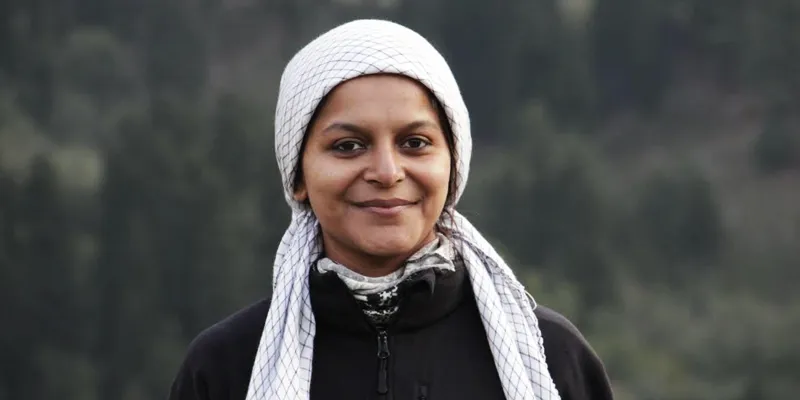These 5 rural women entrepreneurs changed the destiny of their communities
‘Girls, you can do anything!’ tweeted the UN today.
Be it fighting for their rights and equality, or the burden of child marriage, the girl child of today is a powerhouse, slowly and steadily creating a worldwide impact. According to the UN, 600 million girls will enter the workforce in the next ten years.
Noble Laureate Malala Yousafzai is one of the young global icons working towards a world where all girls get educated. There are many others who are taking a lead and steering through the tide to make this world equal.
In 2012, the world celebrated its first International Day of the Girl Child, declared by the United Nations, on October 11.
In its sixth year, YourStory brings you five powerful women entrepreneurs who are empowering rural economies.
Prema Gopalan
In 1993, Latur was hit by an earthquake, destroying the area. Prema, along with a few other motivated people, enlisted women from 1,300 villages to lead the rehabilitation project. By 1998, the women had rebuilt the houses and the project was complete. But, as Prema prepared to leave, the village women came together and decided to lead change in their communities.
This is how Prema started Swayam Shikshan Prayog (SSP) that has helped to turn around the rural economy of Maharashtra by putting women in charge of the state. SSP helps women lead change in their communities through sustainable decentralised livelihoods by enhancing their skills and incomes, developing the network and scaling up socio-economic impact.
Prema empowered these women to face challenges across livelihood, energy, health, agriculture, food, water or sanitation.
Kalpana Saroj

Hailing from a small village in Maharashtra, she was married into an abusive family at the mere age of 16. As if facing physical abuse by her in-laws and husband was not enough, the entire village started to blame her for failure of her marriage. Terrified to know of her situation, Kalpana’s father called her back home. But being unable to bear the brunt of social pressure of a failed marriage, she attempted suicide by consuming poison.
However, life gave her a second chance and she decided to resurrect her life. Kalpana shifted to Mumbai to start a furniture business of her own to help her family through a financial crisis. Soon, she became one of those “village people to have succeeded in the city of dreams.”
And then, there was no looking back. In the 1980s, Ramjibhai Kamani, owner of Kamani Tubes and one of the most successful entrepreneurs at the time, passed away. The company was in great turmoil as his sons fought for the lion’s share. It was then that the board approached Kalpana to take over, given her success in the furniture business.
In 2000, Kalpana became the president of Kamani Tubes, a producer of copper and its products, and by 2006, she got it out of debt, and turned it into a profitable venture.
Gina Joseph
An art geek who took a break from her corporate career to become an accidental entrepreneur, Gina Joseph set up Zola India in 2014 that sources jewellery from rural India.
An online jewellery platform, Zola cuts out middlemen, and empowers the rural youth by getting them better prices enabling them to work on their traditional art.
Working closely with rural artisans, Gina realised that the absence of the right market connect often pushes rural youth away from traditional art. For instance, the Pattachitra (palm leaf etching) artisans of Odisha end up selling their hand-painted/etched scrolls to middlemen at extremely low prices, earning just pennies a day.
In order to revive this art form, Zola India is currently working with about 10 Pattachitra artists, and 20 women Dhokra (bronze casting technique) artisans in Odisha.
In an earlier interview with YourStory, Gina takes pride in how Zola India has empowered rural women in just four years.
“It was such a moment of joy for me when one of my artisans from Odisha proudly told me that she could now afford better education for her two children, while another artisan from Andhra was able to pay part of her home loan through her earnings from Zola India.”
At Zola India, it is always a collaborative effort of technique and insights from the local artisans. Rural folk artisans can now express themselves through wearable art. It also conducts regular design intervention and innovation workshops across rural India to continue the chain of sustainable economic empowerment.
Zola India has been working with dhokra and pattachitra artists from Odisha, toda embroidery artists from Tamil Nadu, wall mural art and aranmula mirror artists from Kerala, leather puppetry and Lac Turnery from Andhra Pradesh, and bidri from Karnataka.
Anuradha Agarwal
In 2015, Anuradha Agarwal visited her hometown and realised there was a growing insecurity among women of her age, mostly housewives, due to a lack of English education. This often led to low self-esteem, even while coping with the most mundane day-to-day situations. Being from a traditional baniya family in Rajasthan, Anuradha could relate well.
She broke all barriers and stereotypes when she decided to set up her own startup. She recalls,
“While pursuing higher studies was still encouraged, the idea of ‘working women’ was quite alien to my culture when I started off.”
Anuradha started posting interactive video modules on her Facebook page that generated a lot of traction from eager learners. Seeing the response, she decided to take a plunge into entrepreneurship and launched an Android app to learn English through Hindi and Bengali in December 2016. This is how Multibhashi was born.
Since its inception, the Multibhashi app has modelled English learning through 10 Indian languages, and has been downloaded by close to a million users.
Going beyond its user base, it also employs a large number of women, and provides them with an opportunity to earn a living.
Ekta Jaju

This woman helped farmers in the Nadia district of West Bengal to garner profits from organic farming in a way that is financially sustainable and scalable while keeping the farmers’ interest in mind.
Ekta Jaju aimed to build a sustainable, organic, and resilient community, and started ONganic Food in 2012. She pushed the farmers to switch to organic farming. The company currently works with more than 300 farmers and aims to reach 10,000 farmers by 2025.







